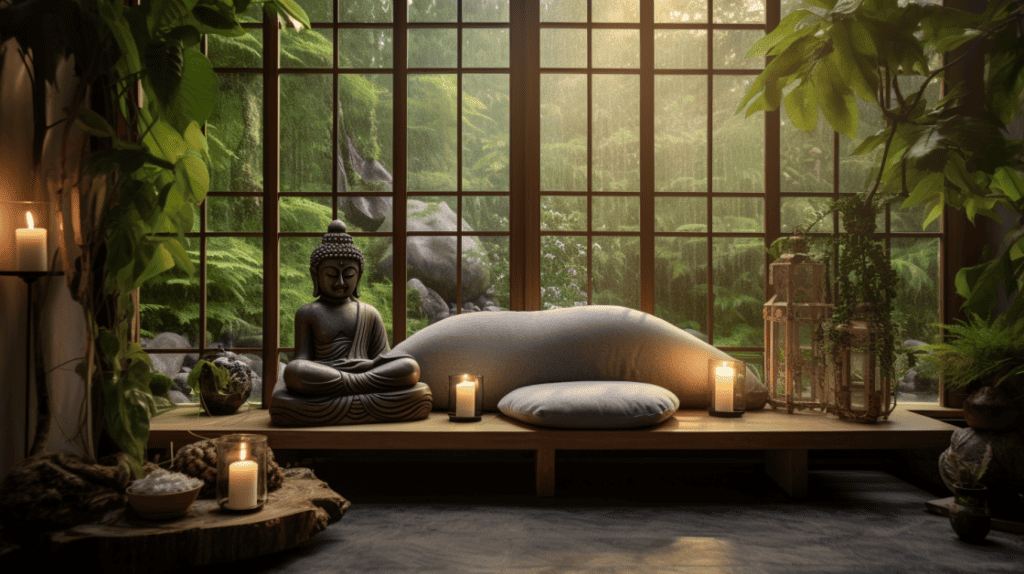
Feng Shui is an ancient Chinese practice that focuses on harmonizing individuals with their environment using energy forces. It is a metaphysical and philosophical system that aims to create balance and harmony in life by arranging and designing living spaces. Feng Shui translates to “wind and water,” which are two of the most important elements in the practice.
The concept of Feng Shui is based on the belief that everything is connected and that energy, or Qi, flows through everything. According to the practice, the arrangement of objects and the design of living spaces can affect the flow of Qi and have an impact on a person’s life.
The practice involves the use of various tools and techniques, such as the Bagua map, the five elements, and the commanding position, to create harmony in life and at home.
Key Takeaways
- Feng Shui is an ancient Chinese practice that focuses on harmonizing individuals with their environment using energy forces.
- The concept of Feng Shui is based on the belief that everything is connected and that energy, or Qi, flows through everything.
- The practice involves the use of various tools and techniques, such as the Bagua map, the five elements, and the commanding position, to create harmony in life and at home.
The Concept of Feng Shui

Are you looking to bring balance and harmony to your living space? Then you might want to consider the ancient Chinese practice of feng shui. Feng shui is a philosophy that aims to create a harmonious environment by arranging living spaces in a way that balances the flow of energy, or qi.
The concept of feng shui is derived from the Taoist philosophy of yin and yang, which describes how opposite forces can be complementary and interconnected. In feng shui, this balance is achieved by arranging furniture, decor, and other elements in a way that supports the flow of qi.
The practice of feng shui includes a range of principles and techniques, including Chinese geomancy, which involves analyzing the energy of a space based on its location, orientation, and other factors. By understanding the energy flow of a space, you can create a harmonious environment that supports your physical, emotional, and spiritual well-being.
One of the key principles of feng shui is the importance of balance. This means that your living space should have a balance of yin and yang elements, such as light and dark, soft and hard, and curved and straight. By creating this balance, you can create a space that feels comfortable, welcoming, and harmonious.
In feng shui, the concept of qi is central. Qi is the life force energy that flows through all living things, and it is believed that by balancing the flow of qi in your environment, you can improve your health, relationships, and overall well-being. By arranging your living space in a way that supports the flow of qi, you can create a space that feels calm, peaceful, and energizing.
Overall, feng shui is a powerful tool for creating a harmonious living space that supports your physical, emotional, and spiritual well-being. Whether you’re looking to improve your health, relationships, or overall sense of well-being, feng shui can help you create a space that feels welcoming, comfortable, and balanced.
The Five Elements

You may have heard about the Five Elements in Feng Shui – Earth, Metal, Water, Wood, and Fire. These elements are believed to have a significant impact on the energy flow in your home or workspace. Each element represents a different aspect of life, and it’s important to have a balance of all five elements to promote harmony and well-being.
Earth Element
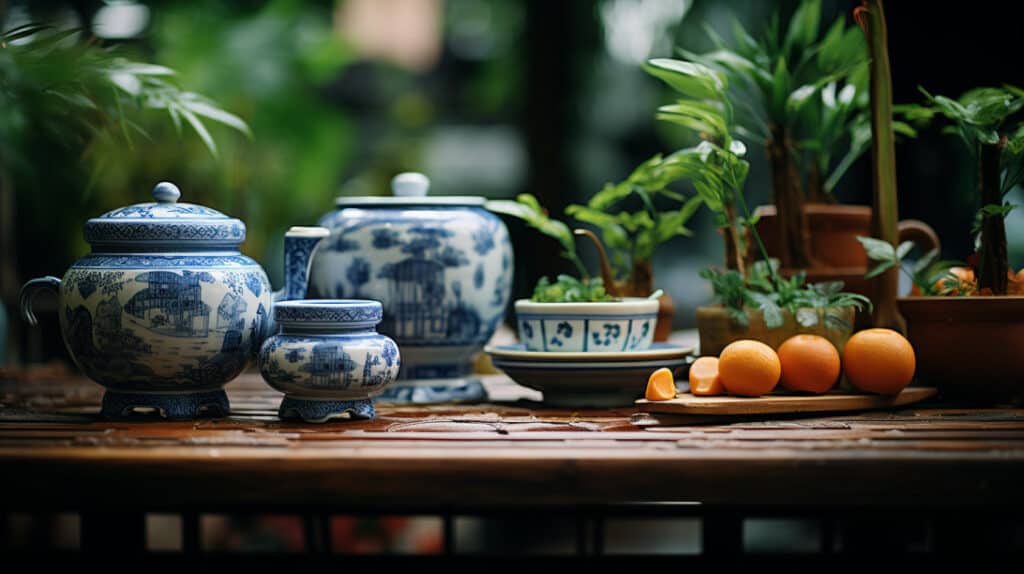
The Earth Element is associated with stability, grounding, and nourishment. It’s represented by the colours brown and yellow, and materials such as ceramics, bricks, and stones. To incorporate the Earth Element into your space, you can add potted plants, earthy-coloured decor, or use natural materials like wood and stone.
Metal Element
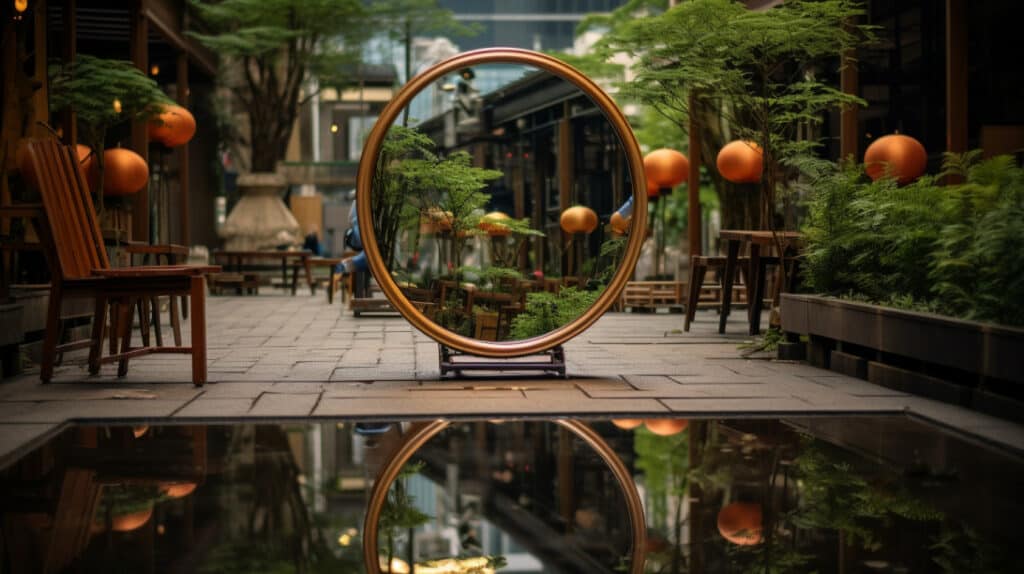
The Metal Element is associated with clarity, precision, and efficiency. It’s represented by the colours white and silver, and materials such as metal, glass, and mirrors. To incorporate the Metal Element into your space, you can use metal decor, display your favourite items on a silver tray, or hang a mirror to reflect light and energy.
Water Element
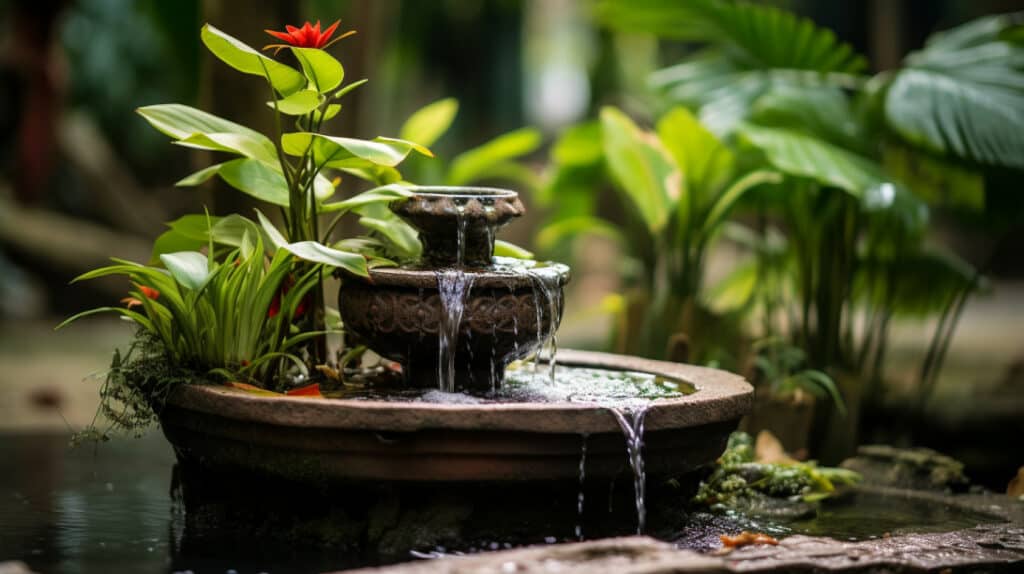
The Water Element is associated with flow, abundance, and calmness. It’s represented by the colours black and blue, and materials such as glass and mirrors. To incorporate the Water Element into your space, you can add a small fountain, a fish tank, or hang a painting of a tranquil lake or ocean.
Wood Element
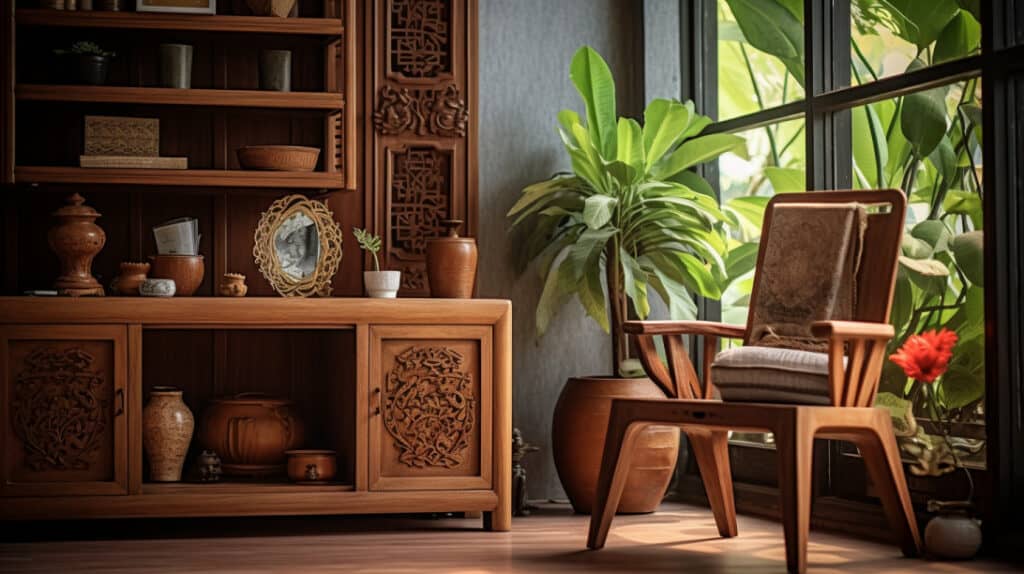
The Wood Element is associated with growth, creativity, and flexibility. It’s represented by the colours green and brown, and materials such as wood, bamboo, and plants. To incorporate the Wood Element into your space, you can add potted plants, wooden furniture, or hang a painting of a forest or trees.
Fire Element
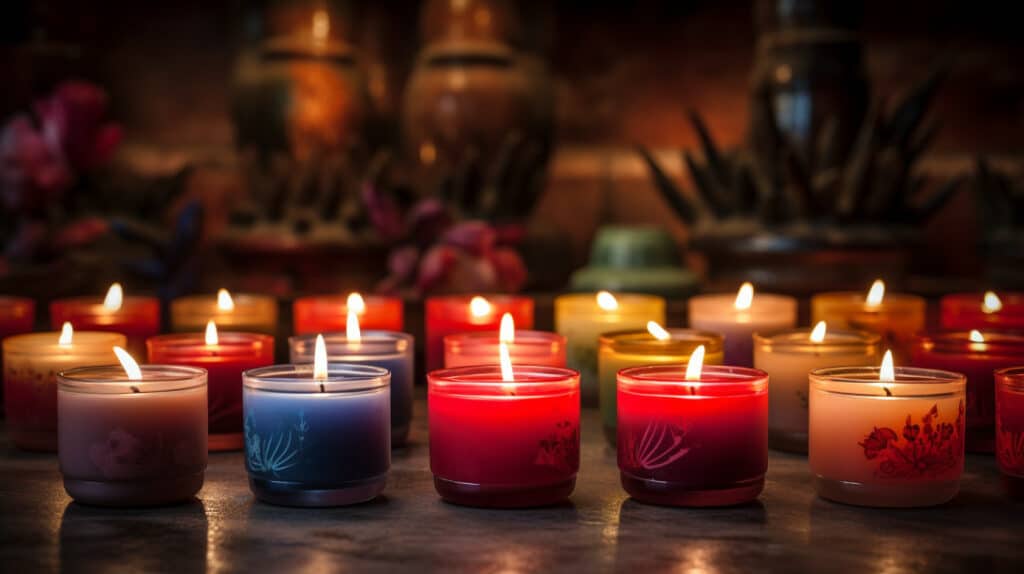
The Fire Element is associated with passion, energy, and transformation. It’s represented by the colours red, orange, and pink, and materials such as candles, lights, and electronics. To incorporate the Fire Element into your space, you can add candles, a fireplace, or use warm lighting to create a cozy and inviting atmosphere.
By understanding the Five Elements and how they relate to your space, you can create a harmonious and balanced environment that promotes positive energy and well-being. Remember to incorporate all five elements into your space in a way that feels natural and authentic to you.
Incorporating Feng Shui in Your Home
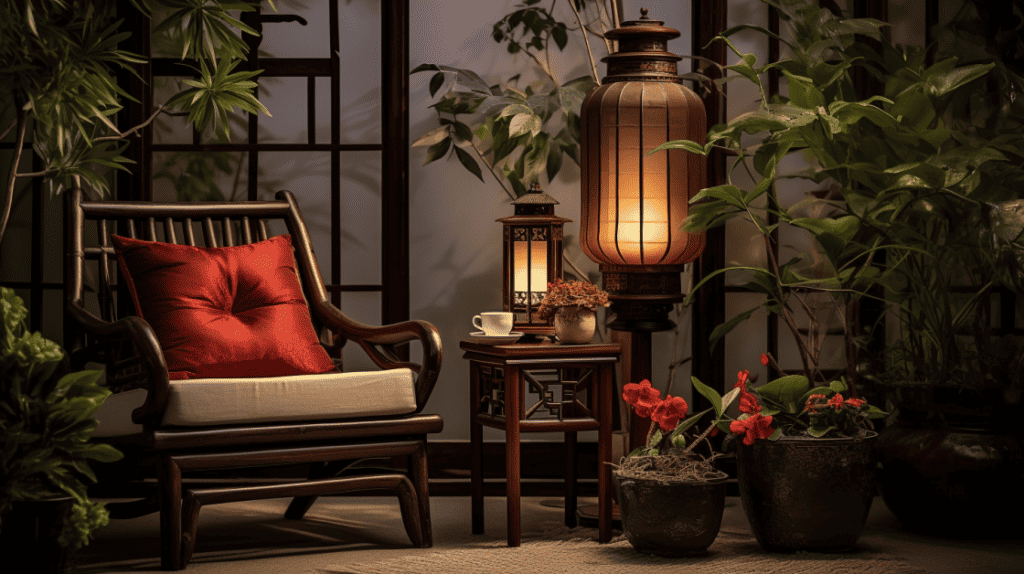
You can incorporate Feng Shui in your home to create a harmonious and balanced living environment. This ancient Chinese art of placement can help you harness positive energies and enhance your overall well-being.
Here are some tips to get you started:
Start with the Entry

In Feng Shui, the entrance to your home is considered the mouth of Chi, the energy that flows through everything. To create good Feng Shui, make sure your front door is easy to find, well-lit, and in good condition. You can also add potted plants or a water feature near the entrance to attract positive energy.
Clear the Clutter
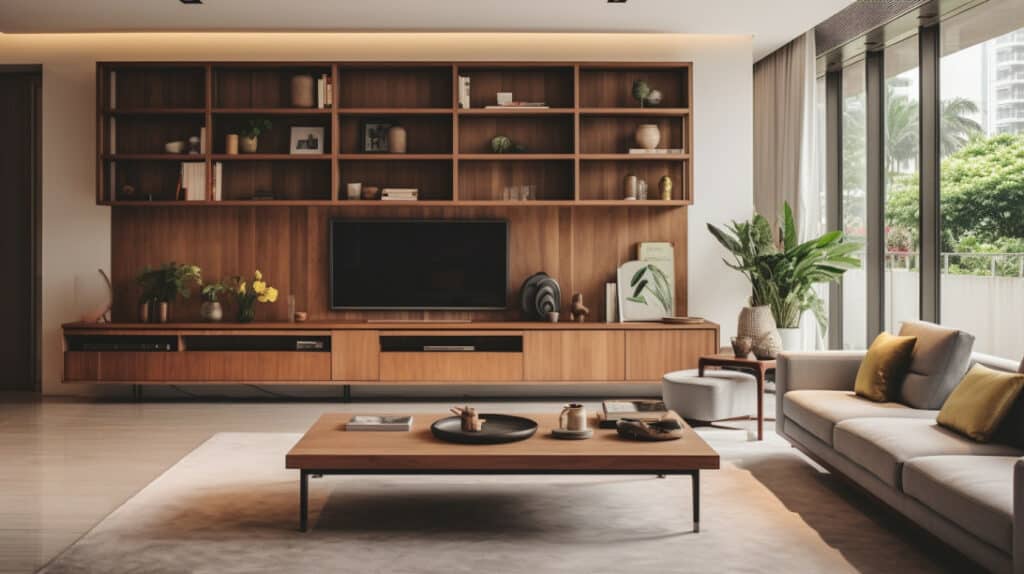
Clutter can block the flow of energy in your home and create stress and anxiety. To create good Feng Shui, declutter your space regularly and keep things organized. Use storage solutions to keep items out of sight and create a sense of calm.
Use Colours and Elements

Colours and elements play an important role in Feng Shui. Each element is associated with a specific colour and can be used to balance energies in your home. For example, blue represents the water element and can be used in the bathroom to promote relaxation and calmness. Green represents the wood element and can be used in the living room to promote growth and vitality.
Position Your Furniture

The placement of furniture in your home can affect the flow of energy. In Feng Shui, it is recommended to position your bed, desk, and stove in a commanding position, where you can see the door but are not directly in line with it. This creates a sense of security and control.
Add Plants
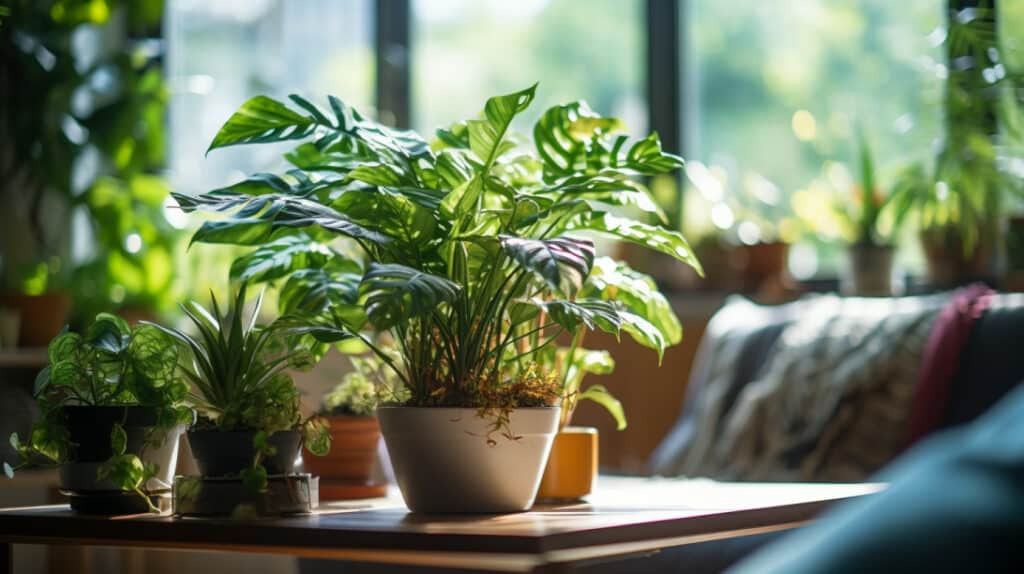
Green plants are a great way to introduce the wood element into your home and promote growth and vitality. They also help purify the air and create a sense of calm. Place plants in areas where you spend a lot of time, such as the living room or bedroom.
Mind Your Mirrors

Mirrors can be used to reflect positive energy and create a sense of space in your home. However, they should be used carefully, as they can also reflect negative energy and create confusion. Avoid placing mirrors directly facing the front door or in the bedroom.
Incorporating Feng Shui in your home can help you create a peaceful and harmonious living environment. By following these tips, you can harness positive energies and promote health and well-being for you and your family.
Feng Shui and Personal Life

You may be surprised to learn that feng shui can have a significant impact on your personal life. By harmonizing the energy flow in your living space, you can enhance your relationships, career, and overall well-being.
Love and Relationships
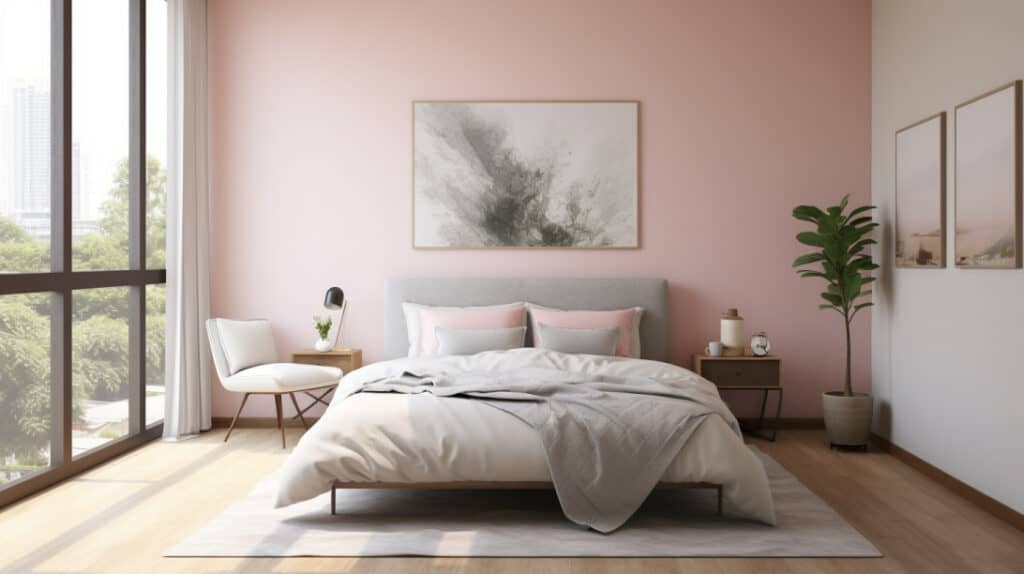
Feng shui can help attract and maintain healthy relationships. By placing items such as pairs of objects, artwork depicting love and romance, and using the colour pink or red in your bedroom, you can create an environment that promotes love and intimacy. Additionally, ensuring that your bedroom is clutter-free and has a comfortable bed can also help improve your love life.
Career and Wealth

Feng shui can also help improve your career and financial success. By placing a wealth bowl in your home or office, using the colour green in your decor, and ensuring that your workspace is organized and clutter-free, you can attract abundance and prosperity. Additionally, placing a water feature in the north area of your home or office can help enhance your career opportunities.
Health and Well-being
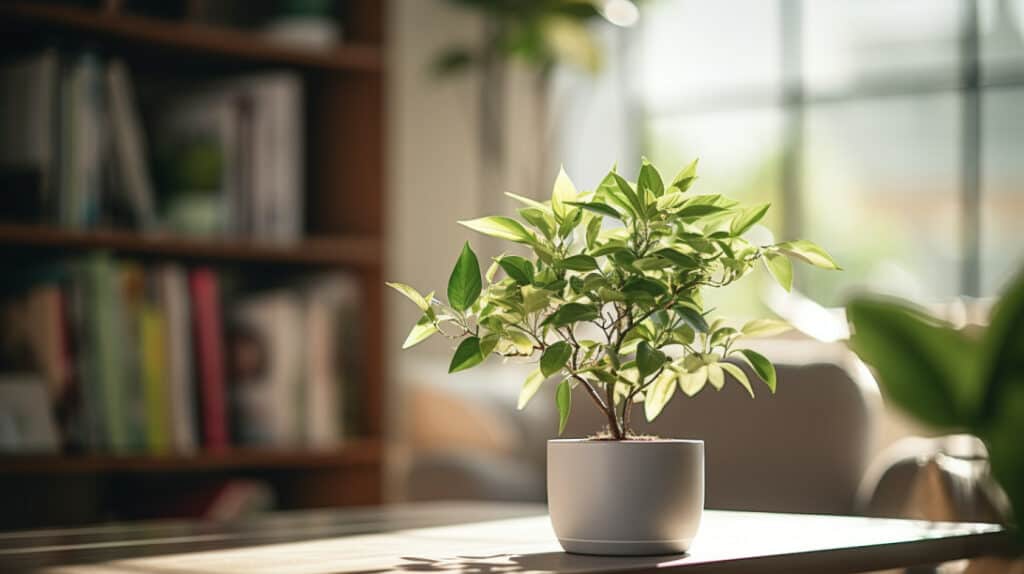
Feng shui can also promote health and well-being. By ensuring that your living space has good air quality, natural light, and is clutter-free, you can create a space that promotes vitality and growth. Additionally, incorporating plants into your decor can help purify the air and promote healing.
Self-care and Boundaries
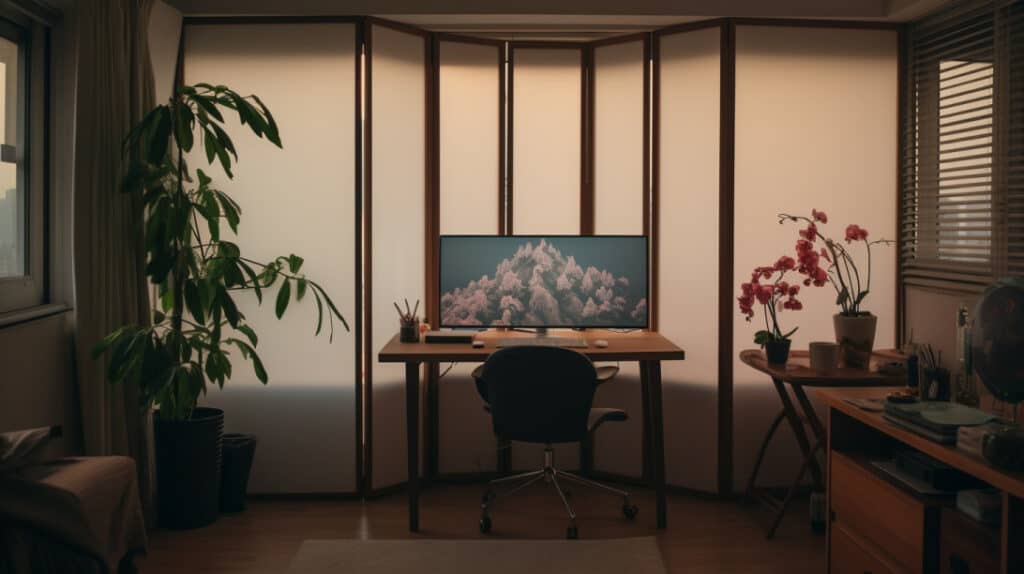
Feng shui can also help promote self-care and boundaries. By creating a dedicated space for relaxation and self-care, you can reduce stress and promote inner peace. Additionally, using dividers or screens can help create boundaries and promote privacy.
Inspiration and Creativity
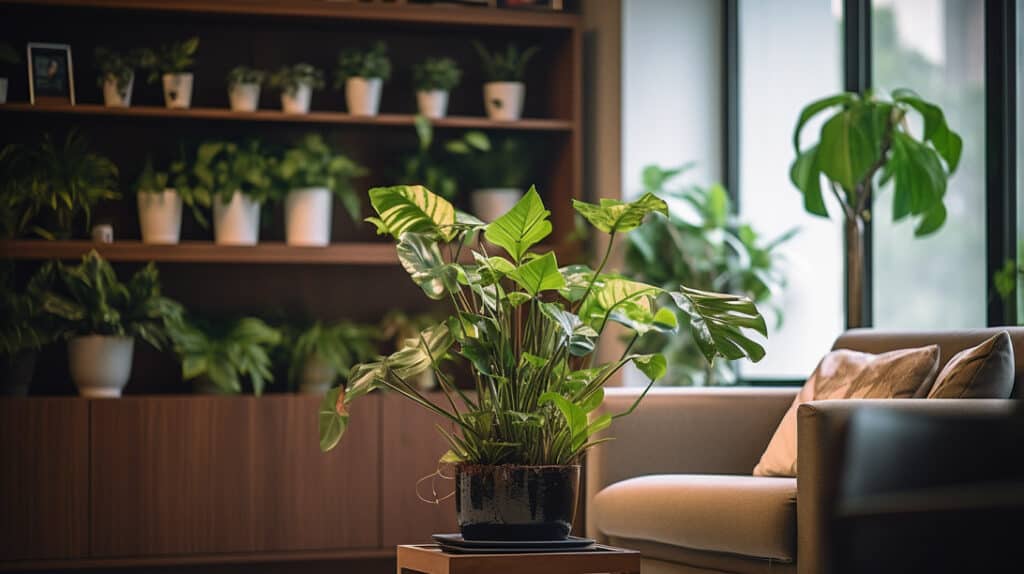
Feng shui can also promote inspiration and creativity. By incorporating artwork and decor that inspires you, using the colour purple, and ensuring that your workspace is well-lit, you can enhance your creativity and passion. Additionally, incorporating natural elements such as plants, stones, and water features can help promote inspiration and tranquility.
Overall, feng shui can have a profound impact on your personal life. By incorporating its principles into your living space, you can enhance your relationships, career, and overall well-being.
Feng Shui Tools and Techniques
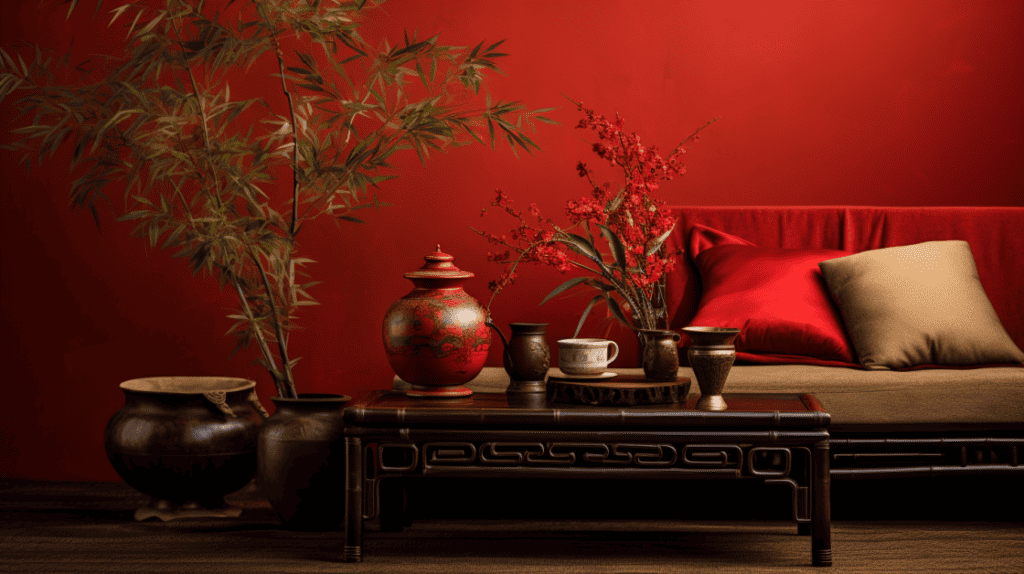
If you’re new to feng shui, you might be wondering what tools and techniques are used to create a harmonious environment.
Here are some of the most common ones:
Bagua Map
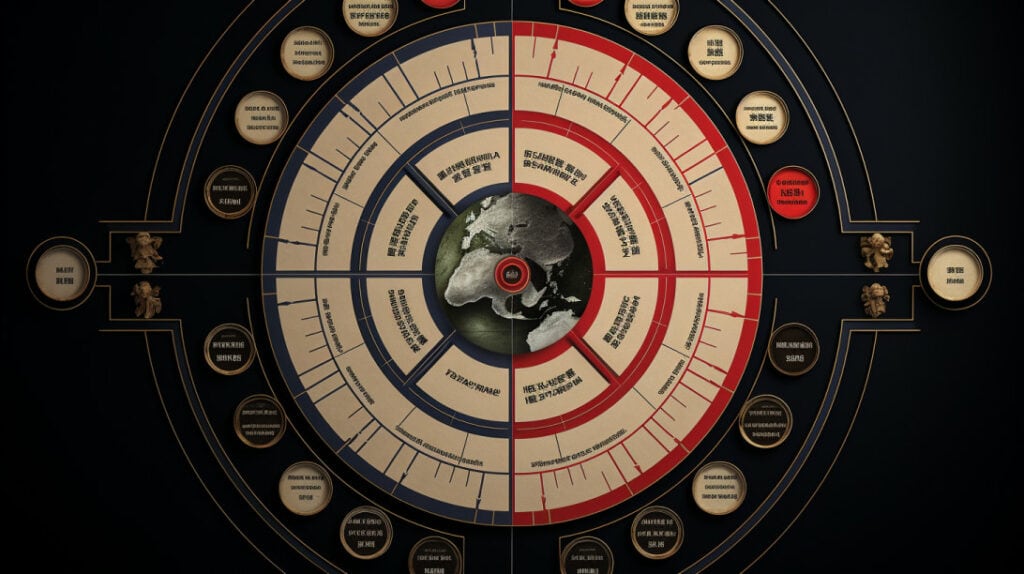
The bagua map is one of the most important tools in feng shui. It’s an octagonal grid that represents the eight areas of life, including wealth, fame, relationships, and health. By placing the bagua map over your home or office floor plan, you can identify which areas need attention and make adjustments accordingly.
Commanding Position
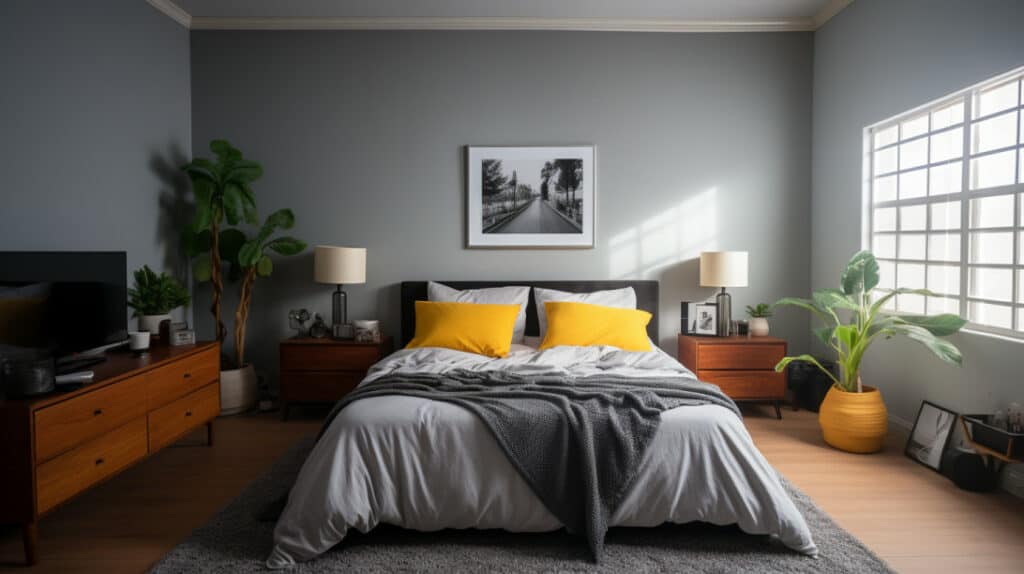
The commanding position is another important technique in feng shui. It involves placing your bed, desk, and other furniture in a position that gives you a clear view of the door without being directly in line with it. This helps you feel more in control and relaxed in your space.
Feng Shui Tips
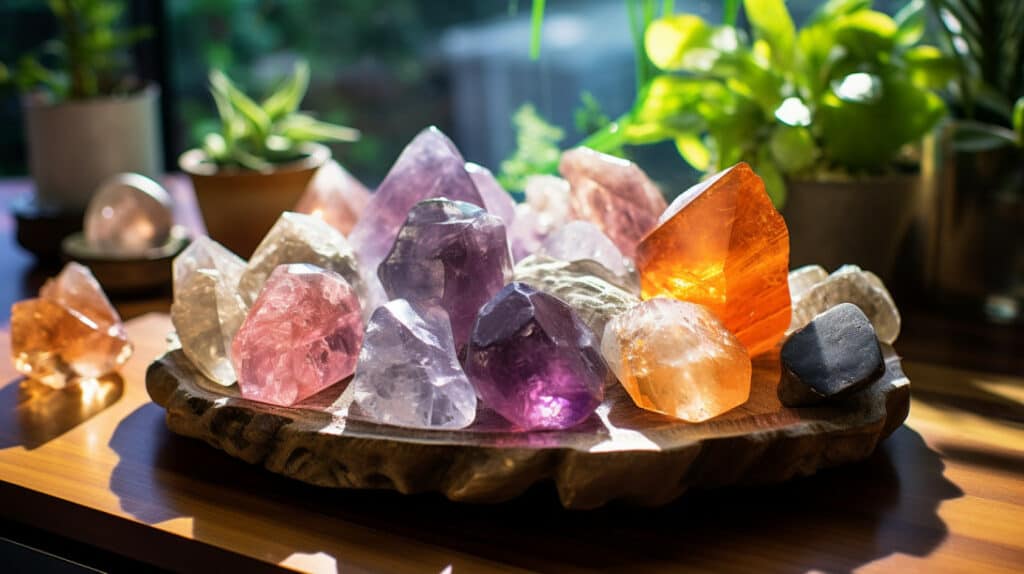
There are many feng shui tips that you can use to improve the energy flow in your home or office. For example, you can use red, white, or gold accents to bring in positive energy, or place mirrors strategically to reflect light and create a sense of spaciousness. You can also use crystals, artwork, and interior design to enhance the energy of your space.
Luopan
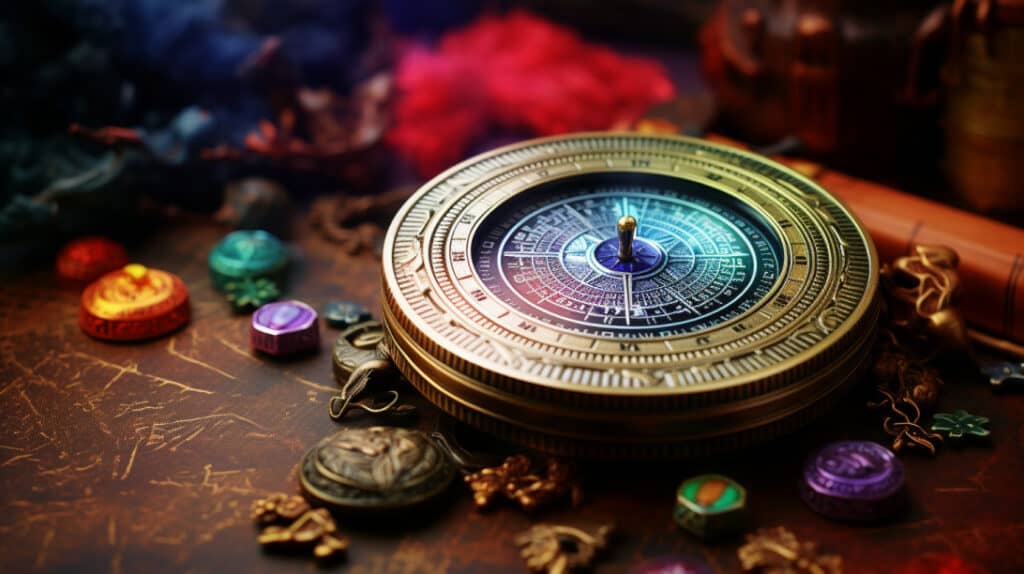
The luopan is a tool used by feng shui practitioners to determine the direction and energy of a space. It’s a magnetic compass that’s used to create a feng shui map of a building or site. By using the luopan, practitioners can identify areas of positive and negative energy and make adjustments accordingly.
Tomb Feng Shui

Tomb feng shui is a branch of feng shui that deals with the placement and design of tombs and burial sites. It’s based on the belief that the energy of the deceased can affect the energy of their descendants. Tomb feng shui practitioners use the same principles and techniques as regular feng shui practitioners to create a harmonious environment for the deceased.
Mouth of Qi

The mouth of qi is the main entrance to a building or site. It’s considered the most important area for feng shui because it’s where energy enters and exits. By keeping the mouth of qi clear and unobstructed, you can ensure a smooth flow of energy throughout your space.
Whether you’re a feng shui practitioner or just interested in creating a more harmonious environment, these tools and techniques can help you achieve your goals. With the right knowledge and application, feng shui can be a powerful tool for improving your life.
Conclusion
Congratulations! You have now completed the in-depth guide to understanding the meaning and principles of Feng Shui. By now, you should have a good understanding of what Feng Shui is, how it works, and how to incorporate it into your life.
Remember, Feng Shui is not a magic solution that will solve all your problems overnight. It is a powerful tool that can help you create a harmonious and balanced environment that supports your goals and aspirations. By applying the principles of Feng Shui, you can create a positive and vibrant energy flow that will benefit you in many ways.
Whether you are looking to improve your health, relationships, or financial situation, Feng Shui can help you achieve your goals. By creating a space that is in harmony with your goals and aspirations, you can attract positive energy and create a more fulfilling life.
So, what are you waiting for? Start applying the principles of Feng Shui in your life today and see the amazing results for yourself. Remember, the key to success with Feng Shui is to stay positive, be patient, and keep an open mind. Good luck on your Feng Shui journey!
Frequently Asked Questions
What are the 5 principles of feng shui?
Feng shui is based on five principles: wood, fire, earth, metal, and water. Each of these elements represents different aspects of life and can be used to balance the energy in a space. For example, wood represents growth and creativity, while water represents calmness and relaxation.
How to apply feng shui at home?
There are many ways to apply feng shui principles to your home. Some tips include decluttering your space, using natural light, incorporating plants, and arranging furniture in a way that promotes good energy flow. It’s also essential to consider the Bagua map, which is a tool used to identify the different areas of your home and the corresponding elements.
What does feng shui literally mean?
Feng shui literally means “wind-water” in Chinese. It is an ancient practice that aims to harmonize individuals with their environment by balancing the flow of energy, or “chi,” in a space.
What are some examples of feng shui?
Some examples of feng shui include using mirrors to reflect light and energy, incorporating natural elements like plants and water features, and arranging furniture in a way that promotes good energy flow. Feng shui can also be used in architectural design, such as incorporating curved lines and natural materials.
How can feng shui be used in interior design?
Feng shui can be used in interior design by considering the placement of furniture, colors, and materials in a space. For example, using warm, earthy tones can promote a sense of calmness and relaxation, while incorporating natural materials like wood and stone can bring balance and grounding to a space. It’s also important to consider the flow of energy in a room and arrange furniture in a way that promotes good energy flow.
What are some feng shui plants to have in the home?
There are many feng shui plants that can bring good energy to a home, such as the money tree, bamboo, and snake plant. These plants are believed to promote prosperity, growth, and purification of the air. It’s important to choose plants that are healthy and vibrant, as wilted or dying plants can have the opposite effect on the energy in a space.




